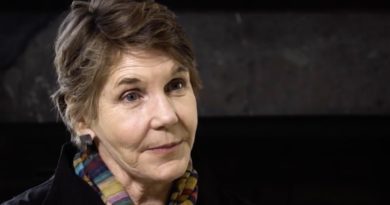Playing the Long Game for Public Health Law
By Lance Gable
At the start of 2023, public health law in the United States faces two obvious structural shortcomings that need to be addressed: the inadequate fit between public health emergency powers and longer-lasting emergencies, and the increased susceptibility of public health law to dilution through political and judicial action.
Legal powers worked largely as designed during the first months of the pandemic, adapting flexibly to the challenges posed by a novel pandemic infectious disease. Expansive use of state-level public health powers to impose social separation, while controversial, allowed for a rapid and abrupt firewall that greatly slowed the initial COVID-19 surge in March and April 2020. Moreover, the expansions of the social safety net were among the most effective legal interventions pursued during the pandemic. Legislation expanded access to health care, unemployment insurance, and social support expenditures, while also protecting people from evictions and utility shutoffs, interventions that were incredibly effective at stemming the spread of disease while simultaneously undergirding the economic and social needs of many people.
The failures of public health in the initial stages of the COVID-19 pandemic response were not failures of legal authority per se; rather, they were failures of leadership and implementation, often driven by political motivations. The dithering of the Trump Administration in taking COVID-19 seriously in early 2020 and their subsequent efforts to undermine public health measures and embrace scientific misinformation almost certainly resulted in hundreds of thousands of excess deaths and millions of excess infections, taking a disproportionate toll on communities of color. And after achieving relative success with its initial COVID-19 mass vaccination campaign during 2021, the Biden Administration has downplayed the need for robust, ongoing COVID-19 mitigation efforts and sought to move on from the pandemic, despite ongoing waves of infection.
Public health law faltered as the pandemic continued and required a more extended response. Emergency public health orders are not designed for lengthy, ongoing application, and conflicts began to emerge between executive branch officials and legislatures at the state level over the continuation of public health interventions. Courts became increasingly willing to overturn public health orders, particularly those that impacted religious expression.
The political scapegoating of public health for the impacts of the pandemic has made public health law vulnerable.
One of the core paradoxes of public health is that preventive and precautionary measures that successfully avert illness or death will retrospectively look like overreactions. The gaslighting of the role of public health in our current moment has warped this paradox and inverted it, with public health skeptics insinuating that public health measures have caused, rather than mitigated, many of the harms that should be attributed to the pandemic itself, from RSV outbreaks in children, to increases in loneliness and depression, to learning loss in schools.
Critics of public health interventions and opportunistic state and local officials have tried to minimize the risk posed by COVID-19, in some cases going so far as to explicitly intervene to keep others from acting to stop the virus from spreading, creating public health law vacuums. In short, the demonization of public health has torpedoed confidence in public health agencies, spurred a retrenchment of support for public health interventions, and actively spawned efforts to curtail public health law in ways that endangers health and limits the ability to respond to future public health challenges.
Public health requires playing a long game, and it is imperative that our society learns the correct lessons from the crucible of this pandemic. Improvements can be made in the structure of public health emergency powers to better adapt them to function well during a long-term emergency. Public health emergency powers should differentiate between short-duration and long-duration emergency responses and clearly articulate how responses to these situations may require the use of different powers and supportive interventions. Similarly, requiring increased transparency regarding the factors underlying public health emergency decision-making may clarify these actions and improve public support for them. These structural changes are acutely needed, particularly because we will soon need to contend with the emerging ravages of the climate crisis.
In addition, a persuasive political case must be made to bolster public health law and invest in the capacity of the public health system, rather than ignoring or undercutting this capacity. This effort will only succeed if public health laws are amended with the goal of preserving the capacity to act in the face of emerging public health threats, and not by gutting public health laws as a reaction to dissatisfaction with the COVID-19 response.
As we begin the fourth year of the COVID-19 pandemic, those of us in the public health community urgently need to conceive of effective ways to dispel the emerging negative myths about public health law and to reassure the public that public health — and public health law — are not their enemies. Politicized opposition to the use of public health authority is not new or unexpected, but even over the course of the pandemic we’ve seen confidence in and support for public health mitigation strategies atrophy and erode. The solidarity demonstrated toward public health and health care workers that was so emblematic of the early pandemic months quickly dissipated, and over the longer-term “pandemic fatigue” set in, rendering ongoing public health mitigation efforts even harder to sustain. Rather than accepting these political setbacks, now is the right time to acknowledge the failures of public health law during the COVID-19 response and mount a renewed effort to convince political leaders and judges of the ongoing importance of preserving — and improving — public health laws that empower us all to respond effectively to emerging threats.
Lance Gable is a professor of law at Wayne State University Law School.






